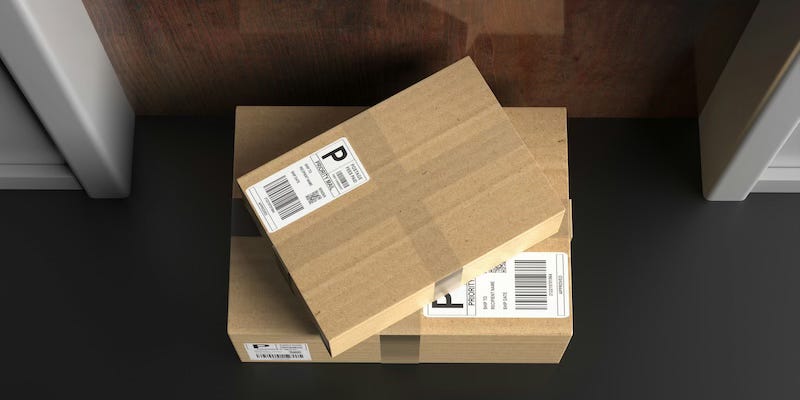This time I was (almost) prepared.
In recent postings, I’ve shared how often the handmade bag from my 90 year-old aunt gets compliments at Trader Joe’s.
Last week, when both the clerk and the bagger admired it as I checked out, not only did I tell them its origins, but also that I was about to launch my mother’s Etsy shop, and that we’d be selling these there, too.
And while I haven’t shared the link here yet — but will soon, I promise — when they asked for more info, I was able to hand them mini-postcards I’d ordered from Moo, the London-based online print and design company.
Next, I hurried home to shoot videos with my niece, who modeled 18 bags — again, each unique and handmade— particularly delighted that both clerks had requested extra cards to share with their Trader Joe’s comrades.

Soon these handmade treasure will all be available… Stay tuned!
I was unprepared, you see, because the postcards had arrived a full ten days earlier than the Moo website predicted, illustrating a maxim I’ve come to associate with this month’s Generosity Theme (meditation HERE):
Always Underpromise & Overdeliver
This simple adage is something I feel I’ve had to request from endless colleagues and drill into countless interns.
Rather than making upfront promises you can’t keep, it’s far better to conservatively estimate — and then deliver a seemingly miraculous result.
That kind of generosity leaves one delighted (albeit unprepared).

Parallel to this experience, this month I also filed the paperwork to establish a not-for-profit organization for some projects in development.
Step One is the state filing, which was straightforward enough, costing $50.
At the end of the online process, before you enter your credit card, you’re told it will be 2-5 business days to get your confirmation.
You’re then offered expedited processing for an additional $50 fee.
Although patience is, at best, one of my sometimes-virtues, I resisted the urge to expedite — especially given the volume of other work I had to wade through — and opted for the standard 2–5 business day process.
Imagine my surprise when the approval came through … exactly 7 minutes later!
I can’t help but wonder what that extra $50 would have done — sliced the approval time into 3.5 minutes?
Even on my worst days, I can manage a few “Serenity Now” mantras for that long.

Usually, when an intern (or frankly anyone) underestimates how long something will take, they’re being generous in the wrong way.
They’re trying to make me feel better in this red-hot minute, rather than budgeting for how long I’ll be aggravated during the unavoidable delays that follow.
And yet, sometimes life itself is surprisingly quite generous, as this poem by Sheenagh Pugh reminds us:
Sometimes
Sometimes things don’t go, after all,
from bad to worse. Some years, muscadel
faces down frost; green thrives; the crops don’t fail.
Sometimes a man aims high, and all goes well.A people sometimes will step back from war,
elect an honest man, decide they care
enough, that they can’t leave some stranger poor.
Some men become what they were born for.Sometimes our best intentions do not go
amiss; sometimes we do as we meant to.
The sun will sometimes melt a field of sorrow
that seemed hard frozen; may it happen for you.

Further exploring generosity, I’ve been quite impressed with the author Austin Kleon’s ideas in Show Your Work.
Rather than keeping everything hidden until the final product is revealed, he champions being open, honest, and truly generous with your creative journey.
He encourages us to tell stories about our work.
“Human beings want to know where things came from,
how they were made, and who made them.”
For example, TOMs Shoes are perfectly attractive, but it’s the “one for one” model — where the company promises to deliver a pair of free shoes to a child in need for every retail sale — that makes them truly outstanding.
Indeed, sometimes the behind-the-scenes details dramatically increase the value of what you’re offering.
As Kleon writes:
Teaching people doesn’t subtract value from what you do, it actually adds to it. … People feel closer to your work because you’re letting them in on what you know.
In other words, be generous with your “secret sauce” — and everybody wins.

Last week I boldly defied the Mercury Retrograde to share my new Discover Your Story Quiz HERE.
Fortunately, we hit only a few minor snags of misconnected links.
While I received many lovely responses to the mini-workshops, I was also inspired to pull back the curtain and be even more generous.
Why only offer just one pathway to quiz takers when, as I say in the video, we’re all playing so many different roles?
Why not be generous with the stories we tell about ourselves?
That why I’m inviting you to examine the other side of the tapestry, creating a page which offers all 7 of the classic story archetypes.
Feel free to browse through them and see which ones resonate most deeply.
After all, I would never want to cut your story short.

Lately, I’ve been thinking about that line often attributed to the Sufi poet Rumi:
“Live your life as if everything
is rigged in your favor.”
In the same spirit, a thousand years later — and in kinship with Pugh’s poem —Samuel Taylor Coleridge penned these lines:
What if you slept?
And what if, in your sleep, you dreamed?
And what if, in your dream, you went to heaven
and there plucked a strange and beautiful flower?
And what if, when you awoke, you had the flower in your hand?
Ah, what then?”
Sometimes, the promotional materials you order for your mom’s Etsy store arrive 10 days early.
And sometimes, 2-5 business days transforms into a 420-second online approval.
Indeed, there are moments when it feels like a full-blown conspiracy of generosityis afoot.
When I shared the nonprofit story with a business advisor, he said that if I’d paid for the expedited evaluation, it might have actually landed in human hands — and taken longer.
That’s why I’m glad sometimes the universe truly abides by the principle of underpromising and overdelivering — becoming ever more generous the more we let go.

